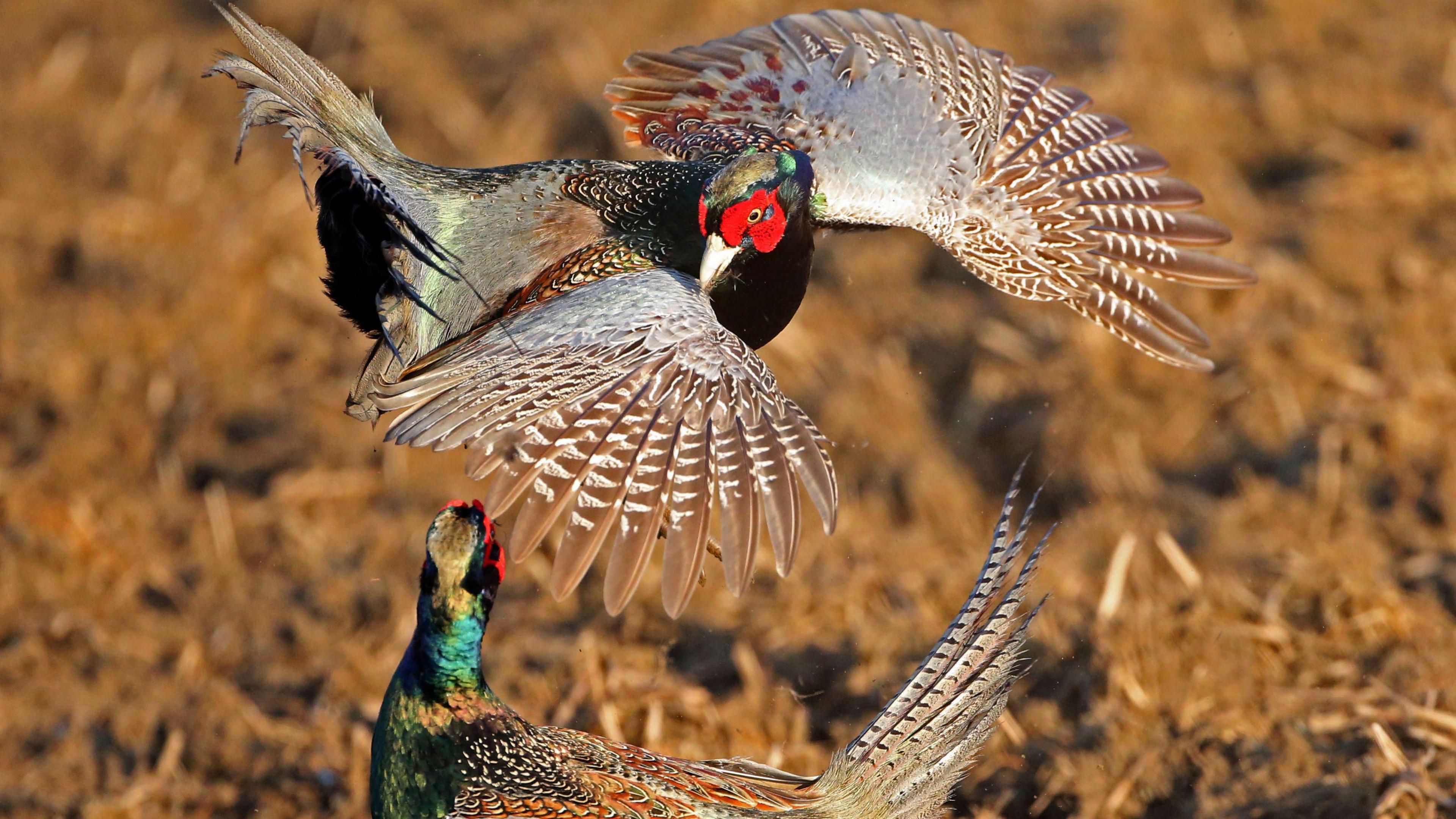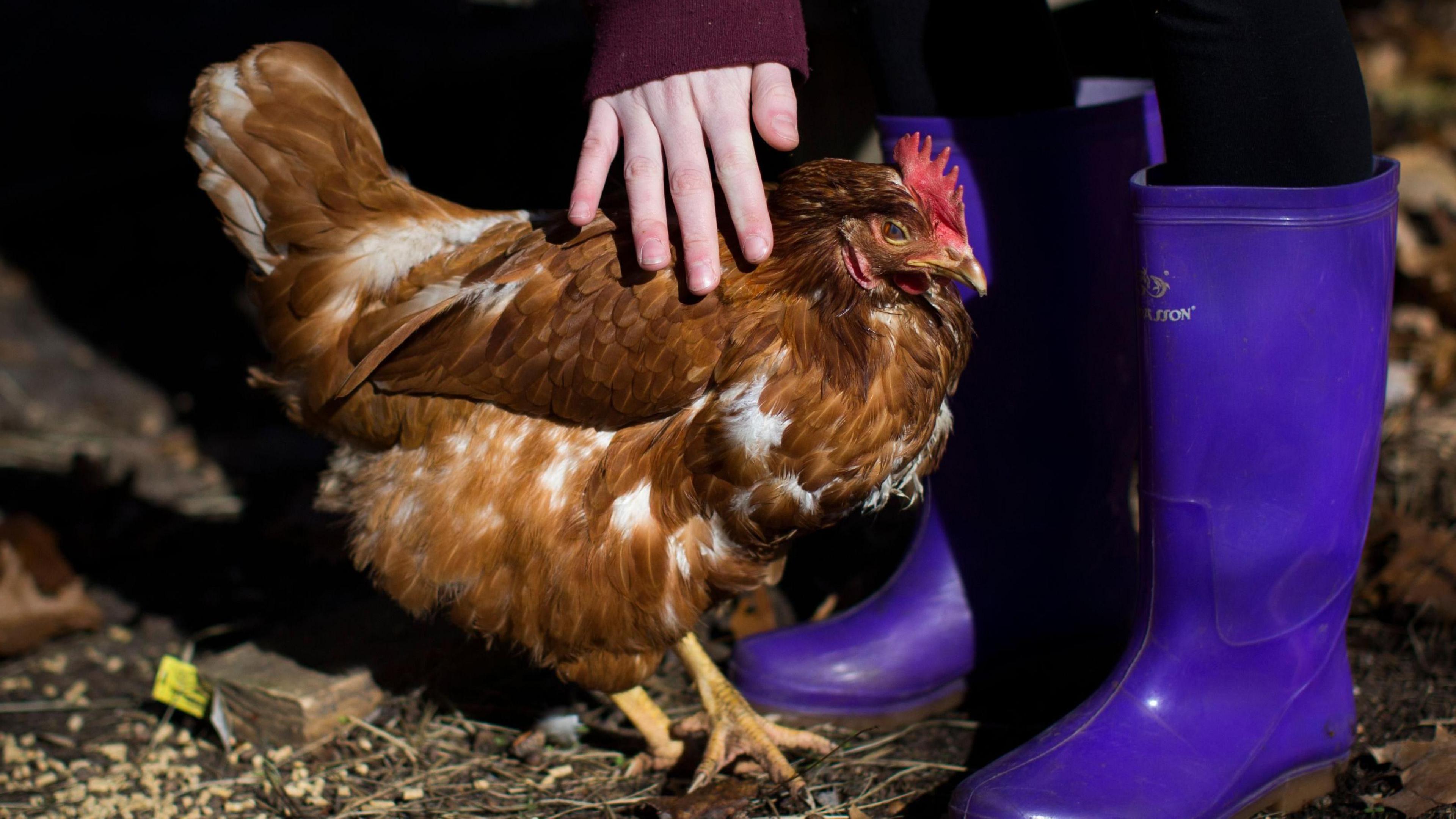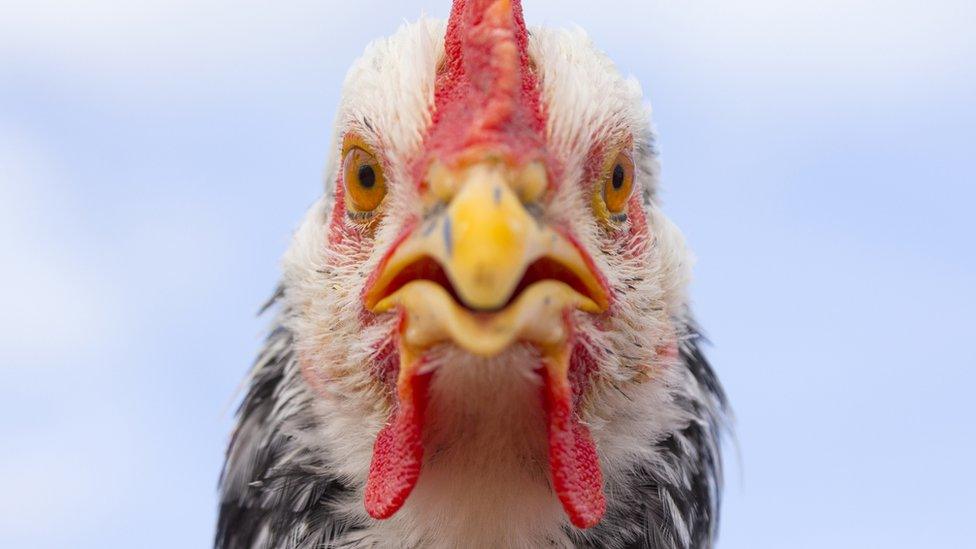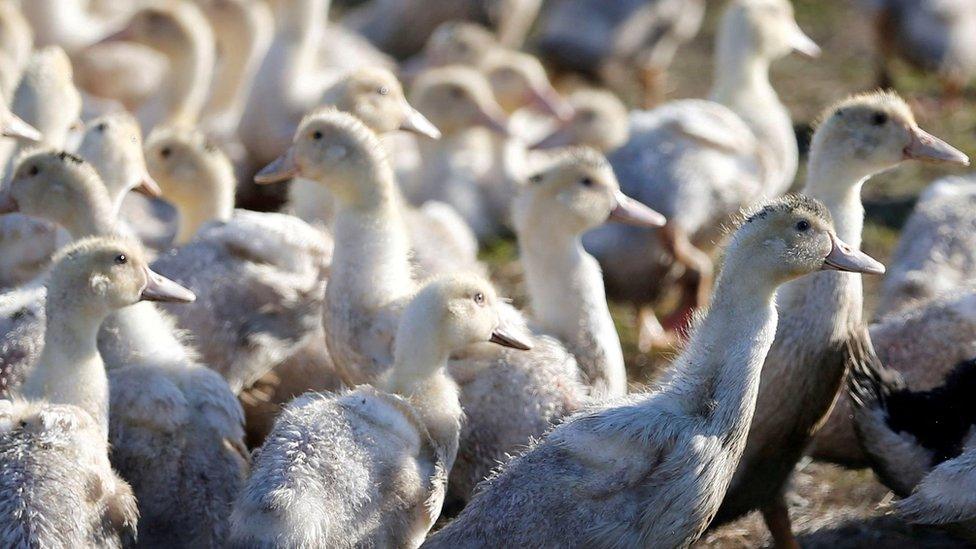Increased risk after pheasants found with bird flu

Twenty infected pheasants were found in Wychavon at the end of September, the government said
- Published
New guidance has highlighted an increased risk from a strain of bird flu, after 20 infected pheasants were discovered in Worcestershire along with a small number of cases elsewhere in the country.
The government said the risk had increased from low to medium in wild birds.
Keepers are being told to remain vigilant, but there are not thought to be any significant public health risks associated with the disease.
The 20 infected pheasants were found in Wychavon at the end of September, according to data from the Department for Environment Food and Rural Affairs (Defra).
There are currently no known outbreaks among poultry or captive birds.
Defra has also recorded cases in areas such as the Shetland Isles, Northumberland, and Norfolk in recent weeks – although each of these concerned five birds at most.
The data shows that other birds affected in recent weeks include herring gulls and great skuas.
Low risks
The UK Health Security Agency (UKHSA) had previously advised that the risk to public health was very low, and the Food Standards Agency (FSA) added that bird flu posed a very low food safety risk for consumers.
Properly cooked poultry and poultry products, including eggs, are safe to eat, the FSA said.
Defra said in its guidance that avian flu in wild birds had been dominated by the H5N1 strain in recent years, but that finding the H5N5 strain was likely this season.
Defra said it followed previous findings in Great Britain and recent detections of the strain in Europe.
It added the risk of poultry exposure to the H5 strain of bird flu in Great Britain remained low or very low, depending on the biosecurity measures in place.
Earlier this month, new legislation was brought in which means anyone who keeps outdoor birds in England and Wales must register them as part of efforts to prevent fresh outbreaks.
Owners who fail to register risk being fined or even imprisoned, though officials at the UK government's Animal and Plant Health Agency stressed any punishment under the new regulations would be "proportionate".
Previously only people keeping 50 or more birds in their flock had to register.
Get in touch
Tell us which stories we should cover in Hereford & Worcester
Follow BBC Hereford & Worcester on BBC Sounds, Facebook, external, X, external and Instagram, external.
- Published1 October 2024

- Published18 June 2024

- Published22 May 2024

- Published28 June 2023
